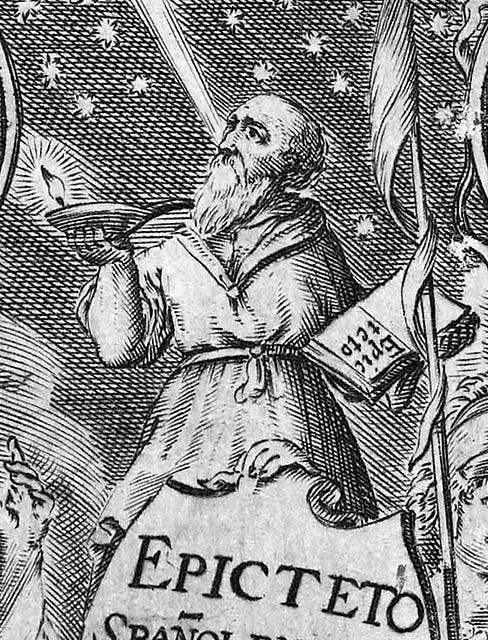Epictetus’s radical Stoicism—Part II
Manage episode 436622906 series 3588922

As I’ve explained in my previous essay, the philosopher Epictetus of Hierapolis has changed my life when I first encountered him a decade ago. He is often presented as a rather “conservative” Stoic, whose philosophy reaches back to that of the third Scholarch of the Stoa, Chrysippus of Soli. But I don’t think that picture is quite right. In my mind Epictetus was a radical innovator, who managed to produce the best version of Stoicism, and the one that can serve as the appropriate basis for the development of a New Stoicism.
Last time we looked at what I think are two, out of six, of Epictetus’s radical innovations, as well as how they are logically connected to each other: the fundamental rule (some things are up to us and others are not…) and the notion that the summum bonum (highest good) in life is to perfect our judgment. Time to look at the other three.
III. Role ethics
My friend and colleague Brian Johnson has made an in-depth case that Epictetus’s version of role ethics was innovative and important. Role ethics in general is the notion that our ethics—i.e., broadly speaking, how we behave—should be based on a serious consideration of the various overlapping “roles” that we all play in life. The very same person, say, myself, can identify with a number of life roles: partner, father, son, brother, friend, teacher, colleague, writer, and so on.
The middle Stoic Panaetius was the first one to develop this notion in detail, as explained by Cicero in his On Duties (1.107–121). Panaetius recognized four personae (after the term for the characters played in ancient Greek tragedy and comedy) based on: our universal nature as human beings, our natural dispositions and character traits, external circumstances, and the lifestyle that we freely choose. Cicero, and presumably Panaetius, left unclear how the four personae can best be balanced in real life. Epictetus simplifies the scheme to two major classes of roles:
“For, if we do not refer each of our actions to some standard, we shall be acting at random. … There is, besides, a common and a specific standard. First of all, in order that I [act] as a human being. What is included in this? Not [to act] as a sheep, gently but at random; nor destructively, like a wild beast. The specific [standard] applies to each person’s pursuit and volition. The cithara-player is to act as a cithara-player, the carpenter as a carpenter, the philosopher as a philosopher, the rhetor as a rhetor.” (Discourses, 3.23.3–5)
He is clear that our role as a member of the human cosmopolis overrides any particular role we may have, which means that in everything we do we ought to act with the good of humanity, not of specific individuals, firmly in mind. The carpenter will be a carpenter and the philosopher a philosopher, but both of them are first and foremost human beings.
How, I hear you asking, can most of us possibly do something that is either helpful or harmful to the entire human race? In countless ways. When we make choices that contribute to climate change, we make the cosmopolis worse off (and vice versa when we make carbon neutral choices); when we spread nonsense about vaccines being generally harmful we contribute to undermining confidence in science and we make it more likely that people will suffer or die; when we gossip maliciously about others we undermine the social fabric. And so no and so forth.
16 episodes




